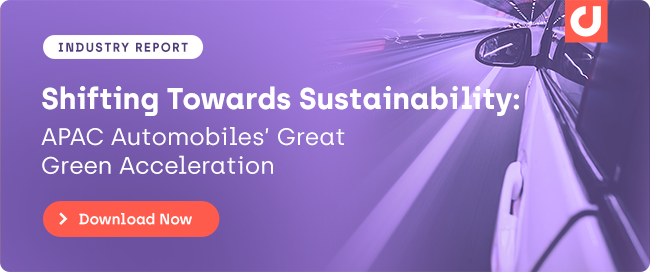With Great (battery) Power, Comes Great Responsibility: Unearthing the Price We Cannot Ignore
With an estimated count exceeding 1.4 billion cars worldwide, the automotive industry has consistently embraced technological advancements as a crucial factor in its evolution.
Noteworthy achievements, such as introducing electric starters and automatic transmissions and pioneering essential safety features like seat belts and airbags, have continuously elevated the performance, comfort, and safety of vehicles. In recent times, the field has witnessed groundbreaking innovations like electric vehicles (EVs), autonomous driving capabilities, and enhanced connectivity, all of which have triggered a profound revolution and laid the groundwork for the future of transportation.
The global movement towards sustainable and environmentally friendly transportation has propelled a significant surge in adopting electric vehicles (EVs) as a promising solution to combat climate change and decrease reliance on fossil fuels. However, as the world increasingly embraces electric mobility, we must remain cognizant of the concealed costs that demand our attention in producing and deploying electric vehicles.
About Nickel Batteries
The superior characteristics of nickel batteries lie in their exceptional energy density, which is nearly twice that of other battery materials. By incorporating nickel in lithium-ion (Li-ion) batteries, the driving range of electric vehicles (EVs) is significantly enhanced, making them an attractive option for powering EVs.
Currently, Indonesia is the largest global producer of nickel. By the year 2030, estimates from Macquarie Group, suggest that global nickel demand will escalate by an impressive 52 percent compared to the levels in 2020. Amidst this heightened demand, Indonesia is anticipated to play a pivotal role by contributing over two-thirds of the world's nickel supply. Renowned automakers like Tesla, Hyundai, and Ford heavily rely on nickel sourced from Indonesia, primarily through battery manufacturers based in China.
The symbiotic relationship between Indonesia's abundant nickel reserves and the soaring demand for long-range EV batteries also poses challenges for environmental and social sustainability.
Nickel Controversy
Source: Digimind Historical Search; automobile-related mentions across Singapore, Indonesia, Philippines, and Malaysia from 01 Jun 2021 - 30 Apr 2023
Nickel mining operations frequently lead to clearing extensive forested regions to access valuable nickel ore deposits. This widespread deforestation causes significant losses in terms of precious ecosystems, biodiversity, and essential wildlife habitats. The destruction of forests disrupts delicate ecological balances and has far-reaching consequences for indigenous communities that rely on these forests as a vital source of resources and sustenance.
Indigenous Communities Affected
Source: Digimind Historical Search; automobile-related mentions across Singapore, Indonesia, Philippines, and Malaysia from 01 Jun 2021 - 30 Apr 2023
Moreover, the displacement of indigenous communities due to mining activities raises serious concerns about violating their land and resource rights from consumers. These communities often have deep-rooted connections to their ancestral lands and rely on them for their cultural practices, livelihoods, and spiritual beliefs. Some consumers on social media believe that the encroachment on their territories not only disrupts their way of life but can also lead to the loss of their traditional knowledge and heritage.
Questioning the “Real” Sustainability in EVs
Source: Digimind Historical Search; automobile-related mentions across Singapore, Indonesia, Philippines, and Malaysia from 01 Jun 2021 - 30 Apr 2023
Similarly, the skepticism faced by consumers about the true “sustainability” of EVs usually also mentions the battery disposal methods and electricity generation in the same breath, leading to a substantial consensus about the efficacy of EVs in improving the current state of sustainability and environmental-friendliness.
Human Rights Violations
Source: Digimind Historical Search; automobile-related mentions across Singapore, Indonesia, Philippines, and Malaysia from 01 Jun 2021 - 30 Apr 2023
One of the foremost concerns being discussed online surrounding nickel mining in Indonesia is the safety and well-being of workers. Reports of inadequate working conditions, lack of proper safety measures, and insufficient labor standards have raised alarms about the welfare of those employed in the mining industry. This raises questions about the responsibility of mining companies in safeguarding the rights and dignity of their workers and the need for stringent labor regulations and enforcement.
Key Takeaways
The transition to EVs offers perceived environmental benefits compared to traditional vehicles. However, we must consider the environmental trade-offs of nickel mining, a key component in EV batteries. Implementing eco-friendly mining practices and ensuring fair labor standards are crucial for the long-term success of the nickel industry and the global transition to cleaner energy solutions.
Digimind is a valuable tool for understanding consumer sentiment about the EV revolution. By monitoring online conversations, Digimind provides insights into public opinions and preferences, helping stakeholders make informed decisions and develop more sustainable solutions in the electric vehicle market.

